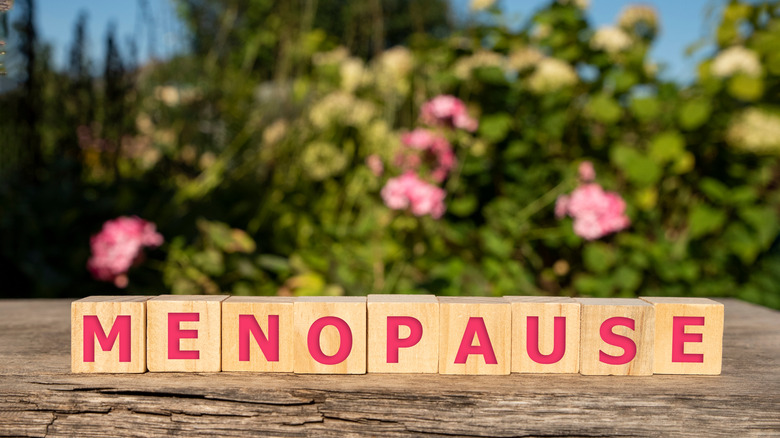The Real Difference Between Menopause And Perimenopause
For women, menopause and perimenopause are inevitable facts of life. These two phases indicate significant changes not only hormonally but physically and mentally. Perimenopause marks the months, and sometimes years, before menopause. Because every woman is different, symptoms will vary from person to person (via Healthline).
A woman is considered in menopause when she stops having menstrual cycles for at least 12 months. For most, menopause occurs naturally. However, the removal of ovaries, chemotherapy, and other radiation can also cause menopause to happen. There is no specific age for menopause to occur. For some women, it lasts a couple of years, while others experience it for ten years (via Mayo Clinic).
Perimenopause, as the name suggests, is the time leading up to menopause. The body begins producing fewer of the female hormones, estrogen and progesterone, which triggers several physical and emotional reactions. There is no definitive age for perimenopause, which makes it more difficult for women to know if they are experiencing it or something else (via Hopkins Medical Center).
The symptoms of menopause and perimenopause are similar. Besides menstruation ending, signs of menopause include hot and cold flashes, night sweats, difficulty sleeping, vaginal dryness, depression, and mood swings. Perimenopause can include some or all of symptoms already listed as well as menstrual irregularities, dry skin, breast tenderness, headaches, a racing heart, dry eyes, weight gain, memory loss, and thinning hair.
Treatment options for menopause and perimenopause
Treatment for menopause and perimenopause varies based on the individual. For some women, menopausal hormone therapy is an option because it helps relieve many symptoms. However, MHT raises the risk of stroke, heart attack, and blood clots. Moreover, the risk of breast cancer increases after about five years of MHT, so it should be considered carefully.
Natural remedies are an option for women not interested in hormone therapy. Black cohosh is an herb that helps with hot flashes. Red clover is made up of phytoestrogens, which can help ease menopause symptoms. Similarly, soy is another option because it is made of isoflavones, which act like phytoestrogens. However, those on estrogen therapy should not take red clover or soy products. Other remedies, such as yoga and acupuncture, are encouraged because they help relieve stress (via Office of Women's Health).
Women should seek the counsel of their physician when looking to treat symptoms of menopause or perimenopause.


